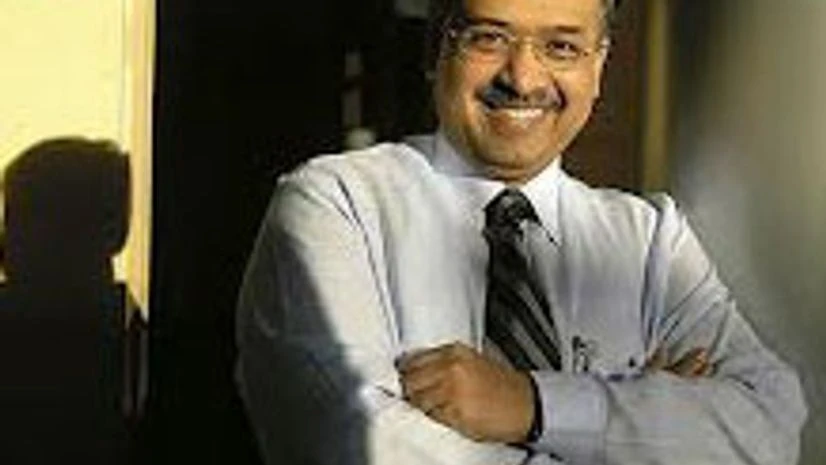Sun Pharmaceutical, Business Standard’s Company of the Year 2013, is not known to make headlines by launching new blockbuster molecules. Yet, it has emerged one of India’s largest drug makers and is among the world’s 10 most valuable pharma companies. Founder & Managing Director Dilip Shanghvi, however, says there is still a lot to do. He wants the company to grow much faster than competition. In an exclusive interview with Krishna Kant & Reghu Balakrishnan, the low-profile CEO talks about his road map. Edited excerpts.
From a challenger, Sun Pharma has become the domestic market leader. What’s next?
Our objective has always been to find ways to grow faster than peers in the markets we are present. In India, we are now the second-largest player in terms of prescription share but the potential market is much bigger. At present, we are market leaders in seven therapies and among the top five in another five-six therapies. Our strategy would be to increase our lead in the former and grow faster than competition in others.
Also Read
In the US, we are still a small player and we have to find a way to increase our presence. Our presence in Europe, Latin America, Russia and CIS (Commonwealth of Independent States) countries and Japan is even smaller. We will gradually step up our presence in these markets.
Sun has always grown by finding niches and focusing on therapies with less competitive intensity. Is this strategy still viable?
Macroeconomic environment and demographics continue to be favourable in India. Availability of modern (allopathic) medicines is still limited — in India, less than half the population has access to western medicines. So, there is a lot of ground to cover here. Second, the average age of patients is rising. That translates into a growing market for ageing-related ailments.
How do you see the new drug-pricing order that seeks to curtail pricing power?
Pricing is very important in India. If you price drugs too high, margins will be high but volumes and revenues will suffer, and vice versa. Magic lies in finding a price point where you can maximise revenues and earn optimum profits, rather than the highest possible margins. In this, the new price-control order is a move in the right direction. This takes us to competition-based pricing and reduces bureaucratic intervention. This is good for the industry’s financial health in the longer term.
Why are pharma companies much smaller than their information technology peers, though India enjoys a competitive advantage in both the sectors?
It is simply a function of the market size. The global generic market is much smaller than the IT services market. But, I think, we have an opportunity to grab a much larger share of the global generic market than what Indian IT companies have achieved. Besides, global generics market is growing in low single-digit rates, unlike the double-digit growth achieved by global IT services companies in the past two decades. So, our rise will be more gradual.
There are rumours about your global acquisition plans. Can we expect something soon?
Historically, we have grown through a mix of organic and inorganic steps. We continue to look at buyout opportunities, given our business goals. However, it’s difficult to predict when the next buyout will happen. As far as buyout is concerned, our focus still is the US market. The Taro buyout helped us significantly but our presence in the US is still very small when compared to larger peers like Teva and Mylan. We have a lot of ground to cover and we continue to look for ways to scale up.
What was the message behind your move to step down as chairman of Sun Pharma?
The idea was to tap the new chairman’s (Israel Makov) international experience and hasten our growth in global markets. His presence will help us emerge a truly global pharma company.
Your son Aalok is already with Sun Pharma. Any immediate plan to bring him to the management?
No immediate plans. At present, he is a general manager with the international marketing team. He has to grow well in his current position before he can be given additional responsibilities.
In the light of two recent approval denials from the US FDA, do you think your decision to hive off your R&D arm into a separate company was a right one?
We keep advising our investors that R&D is a high-risk business and the investment is of a long-term horizon. We are comfortable with the latest developments. We could have done better, but then it’s a complex business and it takes time to figure out the correct business path.
Given the resources you command, would SPARC (the R&D company) have done better if it had remained part of Sun Pharma?
There is a no dearth of resources for SPARC to grow its business. None of its projects is stuck because of lack of funding. The business may not be progressing because we don’t have a clear path yet. From my experience, I believe we should do more with less money. Abundance of money may not always be a solution.
Do you think Indian companies can make better revenue out of paragraph IV litigation, similar to Mylan or Teva in the US?
It depends on the first to file (FTF) opportunity. Teva and Mylan filed more than 80% FTF. Nothing will happen overnight, we have to learn from our experiences. We expect Makov's experience will help us to gain from the US market

)
